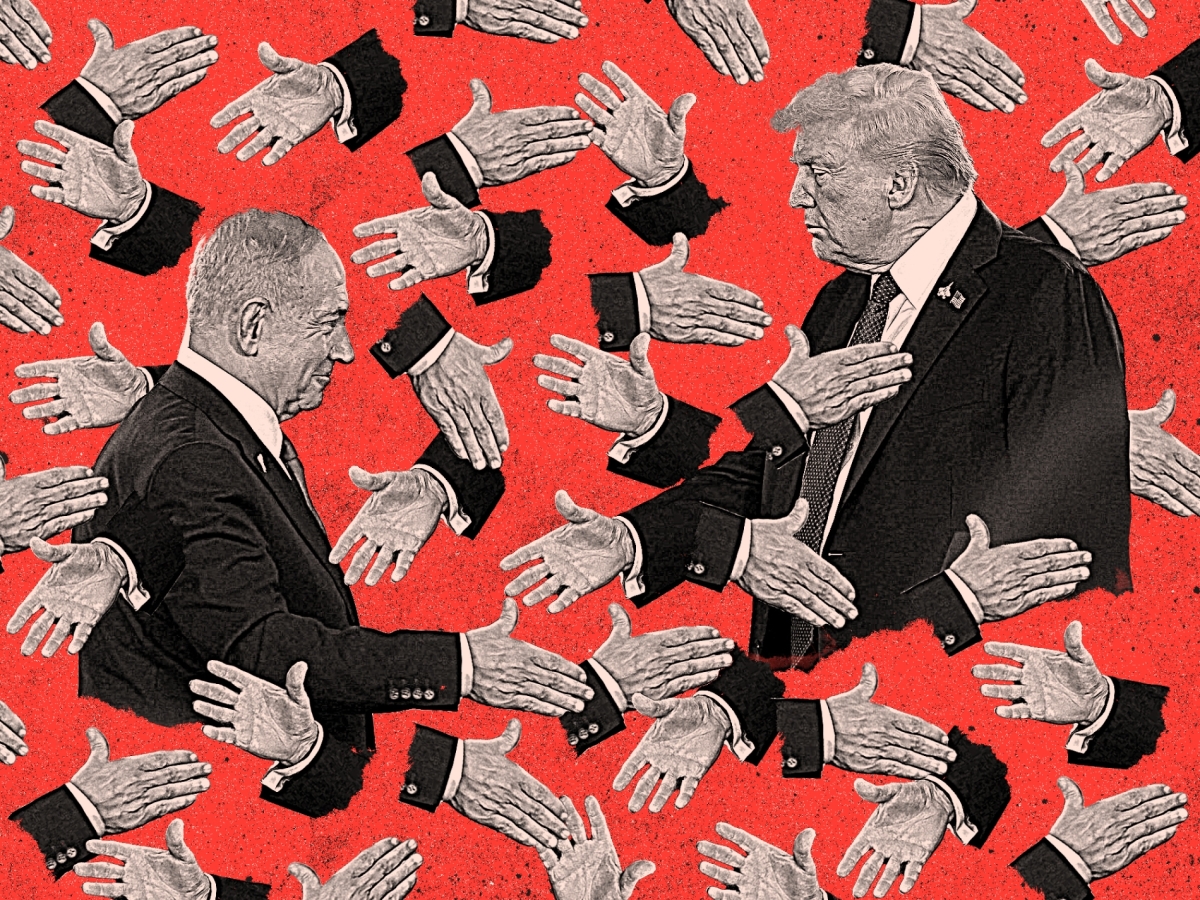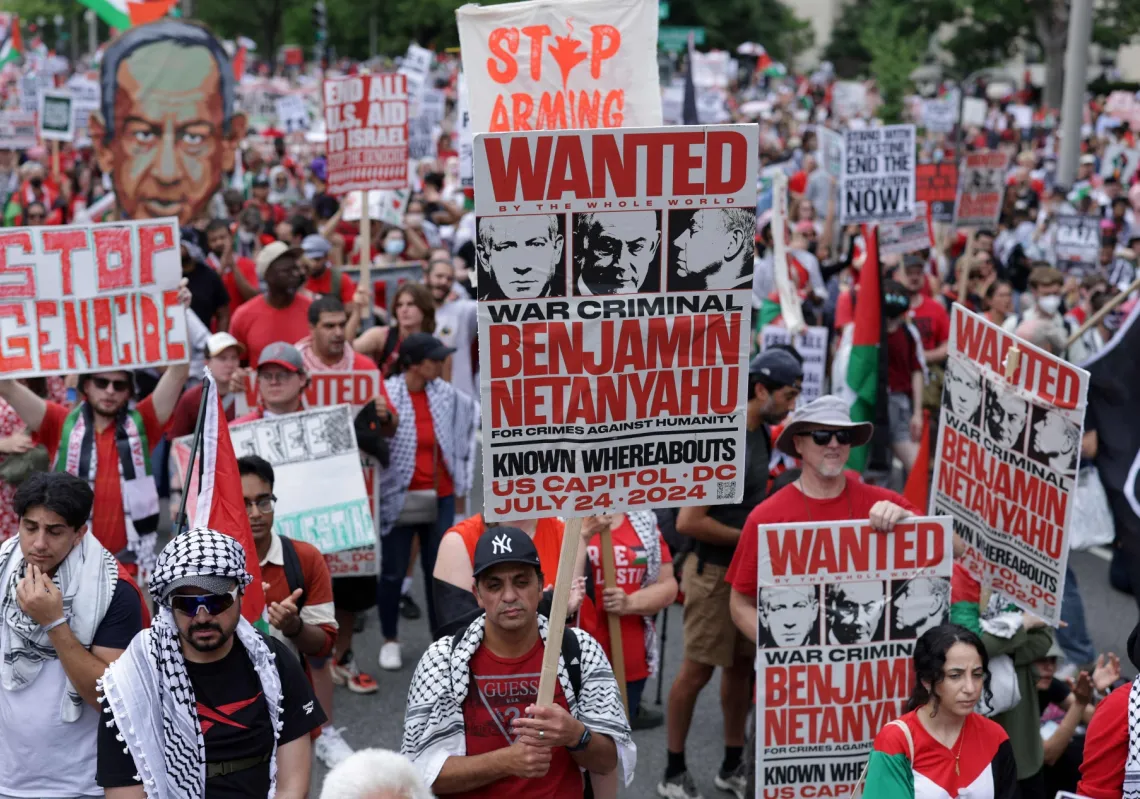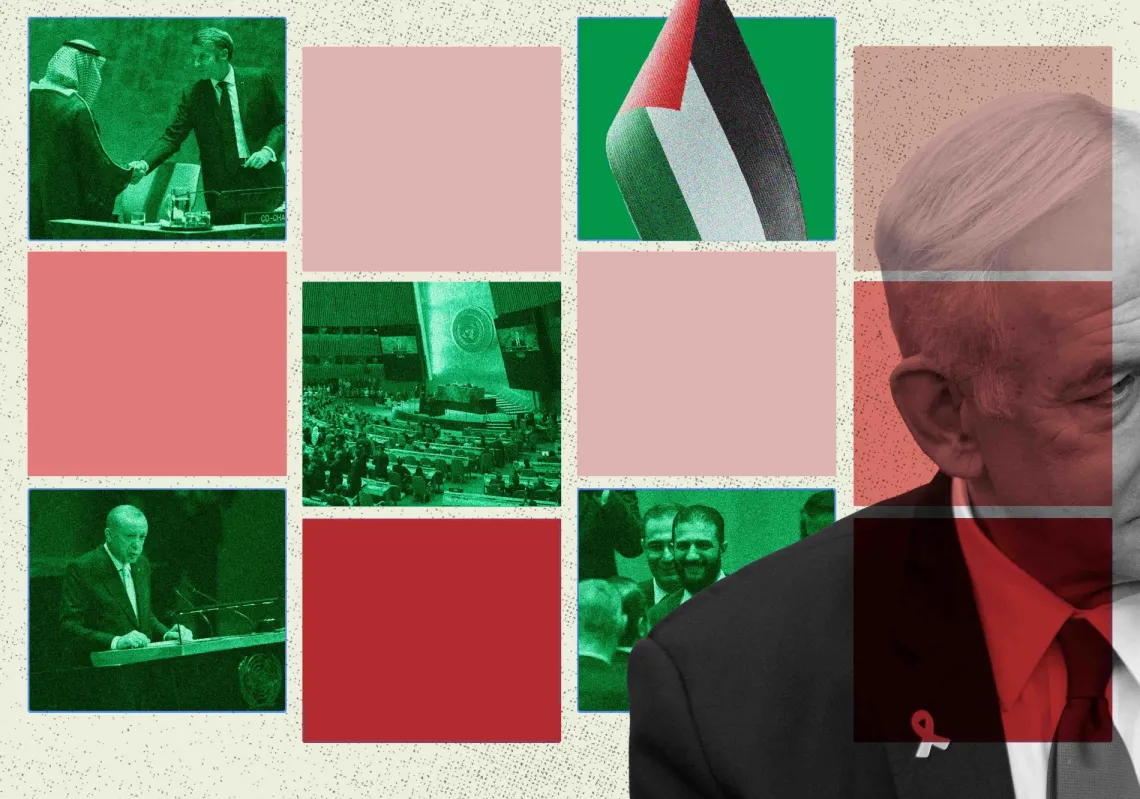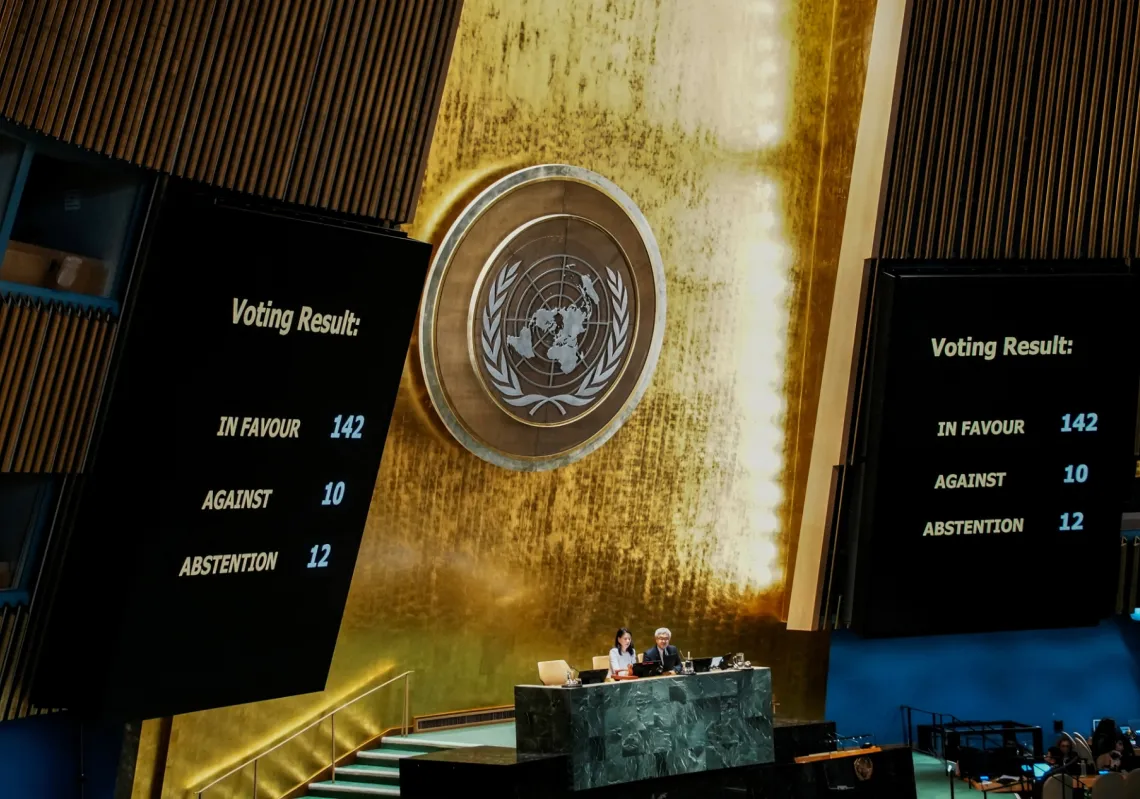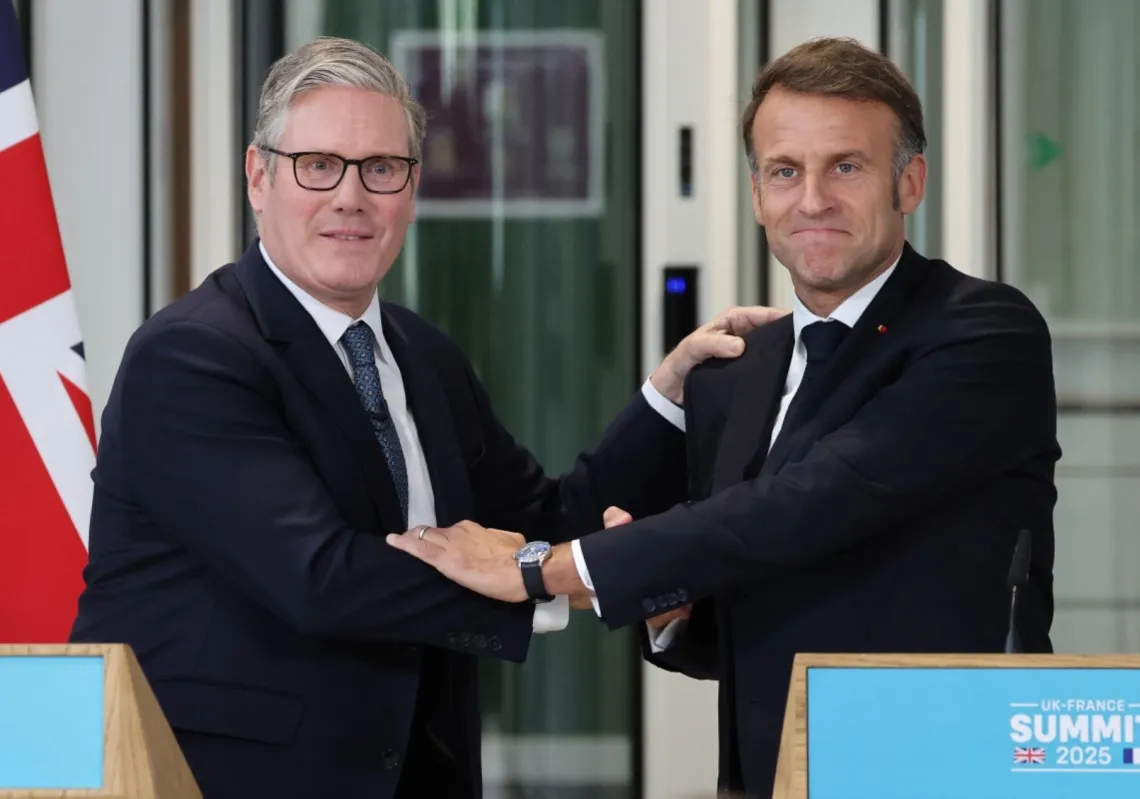Few UN General Assembly (UNGA) sessions have been as explosive as 2025’s. Donald Trump, as ever, grabbed the headlines with his rambling, pugnacious, near-hour-long address. Among the most shocking on a long list of pronouncements that silenced his audience was his criticism of his own allies—notably in western Europe and Britain, saying they were “in serious trouble” and “going to fail” because of immigration and their embrace of green energy.
While the first eight months of Trump’s second term have already seen major tensions in Transatlantic ties, delegates left the auditorium wondering if the Western alliance was itself in ‘serious trouble’.
Nowhere were the growing differences within the alliance more visible than on the other major talking point of the UNGA: Gaza. Benjamin Netanyahu was shunned by dozens of delegates, leaving before his speech, where he accused critical foreign leaders of buckling under pressure to “a biased media, radical Islamist constituencies, and antisemitic mobs.”
This came after several Western governments, including France, Britain, Canada, and Australia, had used the UNGA as the moment to recognise the state of Palestine, prompting fury from Israel and drawing the clearest distinction yet from the US since the Gaza war began.
While symbolically important—especially for Palestinians—the recognition of the state of Palestine by various Western governments has been criticised as performative if not backed up by concrete actions.
Read more: Performative politics: Palestine recognition pledges ring hollow
How significant are these new differences in Palestine within the Western Alliance? Are they ultimately cosmetic, or could they prove the tipping point in a relationship already under major strain?
Differences among Western allies on Gaza are nothing new. Over the course of the conflict, the US has remained steadfastly in support of Israel and shielded it from criticism, while Washington’s Western allies have gradually ratcheted up their condemnation. Italy, Spain, Japan, and Canada have imposed arms embargos, while the UK has suspended 30 of its 350 arms licenses and sanctioned two far-right Israeli ministers.
Drifting apart?
At a superficial level, it appears that the US and its Western allies are moving further apart. Trump said in his UN address that the “rewards would be too great for Hamas terrorists,” if Palestine were recognised unilaterally, while Secretary of State Marco Rubio, the US secretary of State, dismissed the recognition as “irrelevant.”
But beyond these words of condemnation, the White House has taken no action against its allies for going against its wishes. In fact, when Israeli politicians urged Netanyahu to annex all or some of the West Bank in response, Trump declared that he would “not allow it.”
Read more: Will Trump’s red line on West Bank annexation hold?
This came after lobbying by French President Emmanuel Macron and Gulf allies, with the UAE implying it could imperil the Abraham Accords—the normalisation agreements that were a key achievement of Trump’s first term. Trump’s acquiescing to Macron does not suggest that the US president holds any serious grudge or anger towards Paris for recognising Palestine.
Indeed, developments after the UNGA suggest a degree of coalescence among the Western allies on Gaza, rather than division. The Trump administration's claim to be close to a ‘deal’ on the conflict, and used the UNGA to liaise with Arab leaders, Israel, Türkiye and Europeans to discuss it.
While details remain unclear, reports suggest the White House is backing a plan that would controversially see former UK premier Tony Blair head up a Hamas-free temporary technocratic administration over Gaza. While this may come to nothing, if the administration’s goal is to seriously push for both a ceasefire and a settlement, its priority will be to keep Western allies on board rather than fixate on disagreements over recognition.
Trouble ahead?
But there remains the risk that this just papers over the cracks within the Transatlantic alliance on Israel and Palestine, and, were any such deal to fail or not get off the ground, they could soon resurface. Unlike Trump, most other Western leaders are under domestic pressure to be more critical of Israel and seek ways to end the conflict. As such, recognition is a means, not an end in itself. Should the war continue and more Palestinians are killed, those politicians will be expected to take further action.
After a recent UN Commission of Inquiry declared that Israel has committed genocide in Gaza, Europeans, especially, have begun exploring further sanctions. European Commission president Ursula von der Leyen has proposed suspending aspects of the EU–Israel Association Agreement that would deny Israeli goods privileged access to European markets.
Spanish Prime Minister Pedro Sanchez has called for Israel to be treated like Russia was after the invasion of Ukraine and banned from international sports contests. UEFA is coming under pressure from members, particularly Türkiye, to ban the Israeli national team and Israeli club teams from its competitions. Were these or other sanctions to be announced, Western leaders like Macron and the UK’s Keir Starmer would face demands to extend their own measures against Netanyahu’s government.
And this could reignite the issue for Trump. The State Department has already stated it will stop any effort to ban Israel from the 2026 FIFA World Cup, which the US is co-hosting. Trump enjoys close ties with FIFA president Gianni Infantino and could push FIFA to override any UEFA ban. The more Trump continues to position himself as Israel’s international defender, the more his Western allies will feel compelled to pressure Netanyahu, and the more the issue will create division within the Western alliance.
WWTD: What will Trump do?
Yet such a response from the White House is far from inevitable. While Trump has, thus far, shown himself to be firmly behind Israel, the president is famously unpredictable. Israel’s attack on Hamas operatives in Qatar has provoked a furious response from the US’s Gulf allies, who have lobbied the White House to do more to rein in Netanyahu.


